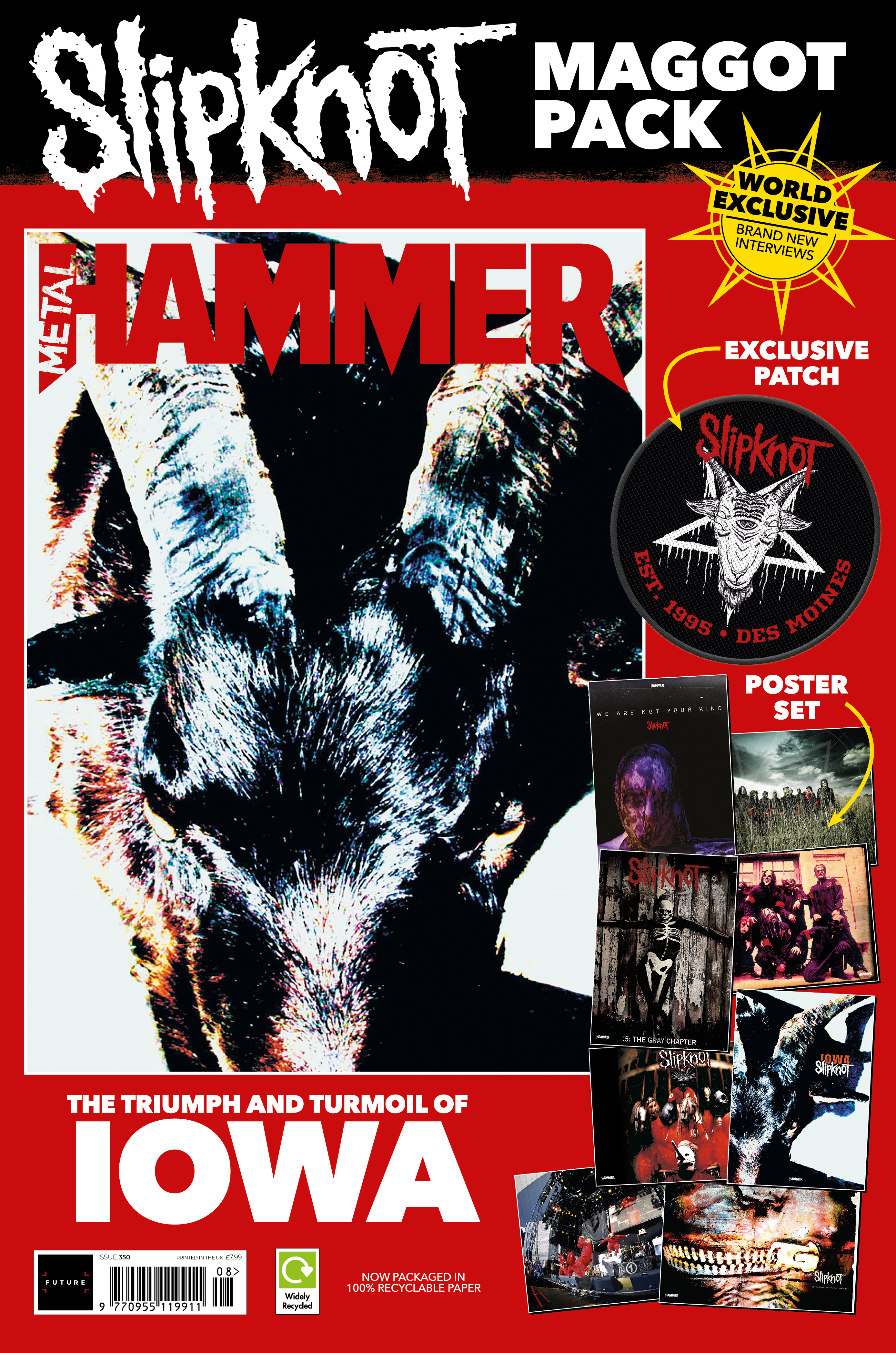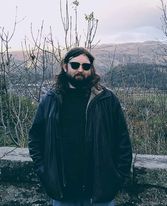Twenty years on from its release, Opeth's fifth album Blackwater Park continues to have an impact on the next generation of metal bands. Before its release, the Swedes were ten years into their career, and tired of toiling in obscurity. Then they made Blackwater Park – which put them on the map, and changed extreme metal forever. We speak to the musicians who were inspired by it.

Eugene Abdukhanov (Jinjer)
“Blackwater Park was the first album I listened to by Opeth and I was completely hooked. That album really did change the face of modern progressive metal – it took the way metal was developing in new directions. I know they have an album called Watershed, but Blackwater Park was the watershed, which really changed what they were doing. It’s a record that will never get old!
“The record changed my whole perspective and brought me to a new scene. Before Opeth I’d never come across a band who could combine melodies with that heaviness. That was a door for me to get into softer music, because I mostly just listened to hardcore, technical death metal and extreme music. Back then, I didn’t want to deal with anything that didn’t have blastbeats or growling! I remember the guy who gave me the record told me, ‘Beware – this will change your taste in music’, and it really did! I started listening to a lot of bands after Opeth that were closely related – like Katatonia.
“It affected my playing style when I became a musician. Anyone who knows what we do knows we love diversity and I think a lot of that comes from Opeth, as they’ve always been a diverse band using elements from different genres. Opeth sound very natural – this is a band that don’t use samples on drums, aren’t crazy about editing their music. They aren’t afraid to sound not-perfect, because sounding flawed is what lets them sound unique.
“My favourites on the record are The Drapery Falls and Harvest because I feel like they’re two parts of one song. Thinking of this album gives me so much nostalgia. I remember still being at school and walking home in winter, sitting up in my bedroom with my earphones listening to Opeth as it snowed heavily. That’s a memory the record brings back every time – being alone in this cold apartment where it was just me and my thoughts. The album is a time machine!”
Brady Deeprose (Conjurer)
“I was getting into heavier bands around 2006/2007 through metalcore bands like Bullet For My Valentine and Enter Shikari. Opeth were one of those bands I came across and thought, ‘This is a bit much for me’, at first. But then Watershed came out and the opening track Coil was acoustic and very different to how I remembered the band being, only for Heir Apparent to come in and be the heaviest thing I’d ever heard! I immediately fell in love and rinsed it, going back through their older albums later, and it took me a few years to go back to Blackwater Park. I got to see them play Blackwater Park in its entirety at the Royal Albert Hall, which then made me realise how much I hadn’t engaged with.
“The step up on Blackwater Park really pushed what they were doing with their sound from a songwriting perspective. They’ve had a huge impact sonically on what we do in Conjurer. They’re not an active influence – Dan [Nightengale] and I don’t sit down going, ‘What are Opeth doing and how can we do that?’ but when you look back on the music, you can see the same kind of light and shade Opeth use. On our new album [due for release later this year], I remember putting some acoustic guitar in there and thinking, ‘This feels like Opeth.'
“If I had to show somebody who Opeth were in a Blackwater Park song, I’d pick the title track: if you’re trying to get somebody into Opeth and they can’t handle a 12-minute track, it’s immediately game over! Throw them in at the deep end! I think they found confidence in giving the songs time to breathe and grow, and Blackwater Park is a statement closer for what the band can do.”
Simone Simons (Epica)
“I got to know Opeth through Mark [Jansen, guitars] – we were in a relationship in the early days of Epica and he introduced me to their music. I remember being in his bedroom watching a DVD; it must have been around 20 years ago, but that was the first time I came across them and just fell in love with their unique way of blending unconventional styles together in their music. I loved those beautiful, rich deep growls from Mike and his clean singing. That’s me as a person – I love the rough, heavy stuff but also the delicate sides too.
“Blackwater Park set the course for the records to come – you could hear which direction the band were developing. The Drapery Falls is my favourite [song on Blackwater Park] – Opeth almost mess you up a bit by having this thing where a song will change so much you think it’s a totally different track, but its still the same song! Epica do the same with our longer compositions; it can feel like you’re listening to three different songs. The Drapery Falls has beautiful guitar lines and catchy melodies. They’re very accessible, but you also have to be into those psychedelic elements, which can make it very catered just to people who really love a lot of different kinds of music.
“We’ve played with them a few times at places like Wacken and Sweden Rock; I met Mike [Åkerfeldt] backstage and there was a good connection so he invited us out to a show in Stuttgart, where I live. I had the best time. I didn’t go to mosh or whatever, but to appreciate the music… and Mike’s jokes, which not everybody gets! You have to like that dry sense of humour. I love seeing them live and think they’re one of the best metal bands out there.”
Read more on Opeth and Blackwater Park in the new issue of Metal Hammer, that's out now.


